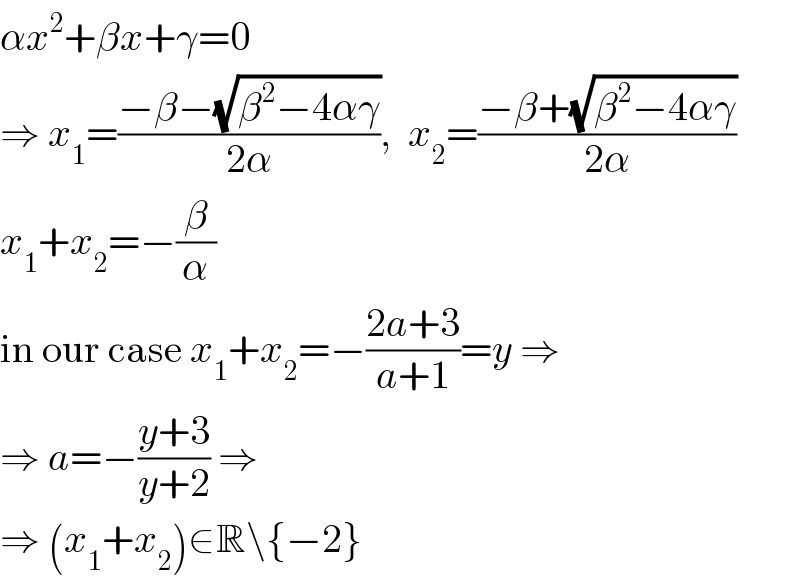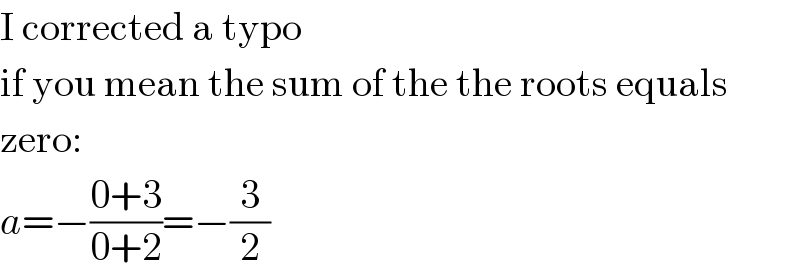
Question and Answers Forum
Question Number 62265 by azizullah last updated on 18/Jun/19

Commented by tanmay last updated on 18/Jun/19

Answered by MJS last updated on 19/Jun/19

Commented by azizullah last updated on 19/Jun/19

Commented by MJS last updated on 19/Jun/19

Commented by azizullah last updated on 19/Jun/19

